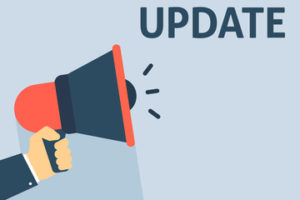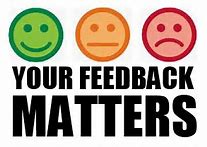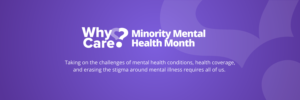![Anthem Blue Cross and Blue Shield and its Foundation Commit $214,000 to Address Mental Health and Homelessness in Southeast Ohio]()
by NAMI Ohio | Jul 31, 2019 | News & Updates

Anthem Blue Cross and Blue Shield and its Foundation Commit $214,000 to Address Mental Health and Homelessness in Southeast Ohio
Multi-pronged funds target intertwined social determinants of health
ATHENS, OHIO. – July 31, 2019 – The Anthem Blue Cross and Blue Shield in Ohio and its Foundation have announced a funding commitment targeting homelessness and mental health in southeast Ohio. The funds totaling $214,000 have been awarded to The National Alliance on Mental Illness Ohio (NAMI) and the Adam-Amanda Mental Health Rehabilitation Center. The funds represent one of largest financial commitments southeast Ohio has ever received to address mental health and homelessness, interrelated societal issues that are nearly impossible to address separately.
“These smart, locally-focused partnerships have the potential to change lives and have a lasting impact,” said Ohio House of Representatives Majority Whip Jay Edwards (R-Athens). “This is an important step forward for our area. I appreciate Anthem Blue Cross and Blue Shield Foundation’s commitment to Southeast Ohio and their focus on the ‘whole health’ of people.”
The Foundation is partnering with community organizations and social service agencies to make progress on social determinants of health in southeast Ohio and throughout the state — factors like homelessness, food insecurity, unsafe neighborhoods, and others that impact people’s lives and create barriers to good health. Anthem Behavioral Health Medical Director Elizabeth Bonanno, M.D. says it’s part of a larger shift in how Anthem approaches its mission to focus on the whole person.
“Anthem is committed to improving lives and communities, and to do that we must focus on the whole health of a person. If someone is unsure where they’re going to sleep at night or struggling with other social barriers, they can’t focus on their health, which leads to poor health conditions. That is why it is important to deal with them in concert with health care treatment,” explained Dr. Bonanno. “These are difficult issues, but addressing them through creative community partnerships is a smart strategy.”
The funds will fund several initiatives in Athens and throughout southeast Ohio, including:
- NAMI of Ohio will use funds to provide financial incentives to landlords in surrounding communities to encourage them to take clients with mental health conditions. The funds will also be used to support clients leaving the Adam-Amanda MHRC to secure supportive housing by assisting them to become financially stable, obtain basic living supplies, and maintain their connection to outpatient mental health services.
- Adam-Amanda Mental Health Rehabilitation Center in Athens – The Adam-Amanda MHRC will purchase an array of equipment to support physical health for patients as they received mental health care, including fitness equipment, fitness trackers, and bicycles. Funds will also be used to support gardening, healthy cooking and artistic expression programs that contribute to long-term mental health. As patients transition from the center back to home, the funding from Anthem and its Foundation will be used to provide rent support, help with paying bills, vouchers for farmers markets, and home goods needed to create a stable home environment. Last fall, Anthem also provided a 16-passenger van to the Adam-Amanda MHRC to assist with patient transportation.
- Appalachian SE Ohio Mental Health & Housing Instability Conference – as part of Anthem’s work with NAMI, the two organizations are planning Southeast Ohio Mental Health & Housing Stability Conference at Ohio University on Oct. 7, 2019. The event will bring together academics, care providers, community organizations and families to address issues specific to Southeast Ohio. REGISTER HERE
NAMI Ohio Executive Director Terry Russel says that the closely-related issues of homelessness and mental health are particularly critical in the 21-county region of Southeast Ohio where 20 percent of people discharged from psychiatric hospitals are likely to be homeless. He pointed out that 60 to 70 percent of people that are chronically homeless in the region suffer from mental health issues.
“NAMI Ohio recognizes that the current mental health system in Ohio is not meeting all of the needs of our severely mentally ill population, especially in southeastern Ohio,” said Russell. “That is the reason NAMI Ohio and other partners created the Adam-Amanda Mental Health Rehabilitation Center where individuals leaving residential treatment can stay for up to 90 days while stabilizing and receiving services to help them transition back into the community.”
Through the Anthem Blue Cross and Blue Shield Foundation’s funding, NAMI Ohio is also currently working to develop 90 beds of stable housing in the southeastern Ohio community where individuals will be able to go once they leave the Adam-Amanda Mental Health Rehabilitation Center. The program provides funding to support landlords in southeast Ohio in making apartments and other rental properties available to people leaving treatment at Adam-Amanda Center.
“We often have to do what we can with the limited resources we have in this area. Anthem and its Foundation have given us the opportunity to create new possibilities for the future of mental health care in our 21-county southeast Ohio service area,” said Adam-Amanda MHRC Clinical Coordinator Margaret Sterling, LPCC-S. “As one example, we were able to work with a gentleman stuck in that revolving door for five years because of the lack of stable housing. But he graduated from our program in December and since then, he has been in the same apartment, seeing his treatment team regularly, and has not had any hospitalizations.”
Russell says mental health rehabilitation services such as those offered through the Adam-Amanda Mental Health Rehabilitation Center should be made available in every community in Ohio and it is the goal of NAMI Ohio to make that a reality.
About NAMI
The National Alliance on Mental Illness of Ohio (NAMI Ohio) is the statewide alliance that serves as the voice on mental illness. The organization is comprised of thousands of family members, individuals, advocates and professionals working together to ensure that Ohioans with mental illness and their loved ones receive the treatment and support they need. Additional information about NAMI Ohio is available at www.namiohio.org
About Hopewell Health Centers
Hopewell is a Community Mental Health Center and an FQHC providing Behavioral Health, Primary Care and Dental Services for all ages in nine counties in southeast Ohio. Hopewell Health Centers, Inc. mission is to provide access to affordable, high quality, integrated healthcare for all.
About Anthem Blue Cross and Blue Shield Foundation
Through charitable grant making, the Anthem Blue Cross and Blue Shield Foundation LLC, an independent licensee of the Blue Cross and Blue Shield Association, promotes Anthem’s inherent commitment to enhance the health and well-being of individuals and families in communities that Anthem Blue Cross and Blue Shield serves. The Foundation focuses its funding on strategic initiatives that make up its Healthy Generations Program, a multi-generational initiative that targets: maternal health, diabetes prevention, cancer prevention, heart health and healthy, active lifestyles, behavioral health efforts and programs that benefit people with disabilities. The Foundation also coordinates the company’s year-round Dollars for Dollars program which provides a 100 percent match of associates’ donations, as well as its Volunteer Time Off and Dollars for Doers community service programs. ®ANTHEM is a registered trademark of Anthem Insurance Companies, Inc. The Blue Cross and Blue Shield names and symbols are registered marks of the Blue Cross and Blue Shield Association. To learn more about the Anthem Blue Cross and Blue Shield Foundation, please visit http://www.anthem.foundation and its blog at https://medium.com/anthemfoundation.
About Anthem Blue Cross and Blue Shield in Ohio:
Anthem Blue Cross and Blue Shield is the trade name of Community Insurance Company, an independent licensee of the Blue Cross Blue Shield Association. ANTHEM is a registered trademark of Anthem Insurance Companies, Inc. The Blue Cross and Blue Shield names and symbols are registered marks of the Blue Cross and Blue Shield Association. Additional information about Anthem Blue Cross and Blue Shield in Ohio is available at www.anthem.com.
![Anthem Blue Cross and Blue Shield and its Foundation Commit $214,000 to Address Mental Health and Homelessness in Southeast Ohio]()
by NAMI Ohio | Jul 18, 2019 | News & Updates

NAMI Ohio, the state’s voice for mental illness, thanks the Governor and members of the Ohio House of Representatives and Senate for approving a biennium budget that will significantly impact both adults and children living with mental illness. We are especially appreciative to the Governor for including significant funding for student wellness and success.
The current mental health system for children is certainly not equipped to treat many of the children needing care. We appreciate the insight that if we are going to treat children with mental illness, we must involve the school systems. In addition to mental health counseling, other programs such as mentoring, wraparound services, and after school programming will now be available to children with the highest level of need.
Although NAMI Ohio has advocated for years that we must address the needs for kids, this is the first time our pleas have been heard. Another important element of this budget is the funding for k-12 prevention education initiatives. This funding will allow schools to purchase prevention curriculum and provide quality prevention services.
Suicide is an epidemic in this state and all over the country. By reducing stigma and educating anyone in contact with youth on how to recognize signs of suicide and intervene, we will save lives.
For so many years, the 500,000 citizens of this state who lives have been invaded by mental illness have felt ignored and alone. Today, the state government recognized that we can provide services that will enable so many people to achieve the American dream.
Thank you!
Terry L. Russell
For additional information and a more detailed response: Biennium Budget
![Anthem Blue Cross and Blue Shield and its Foundation Commit $214,000 to Address Mental Health and Homelessness in Southeast Ohio]()
by NAMI Ohio | Jul 2, 2019 | News & Updates

Dear Friends of NAMI Ohio,
NAMI Ohio has been very involved with what has been called the “redesign of the mental health and addiction system” under managed care in Ohio.
Recently, the Ohio Department of Medicaid developed a process to submit public input on the redesign implementation in Ohio. I think it is fair to say that this implementation has been less than positive for those that we represent.
The plan document can be found at: Public Comment: HCBS Statewide Transition Plan.
Once on the webpage:
- Click on the link that says SUMMARY for a short overview of the plan
- Click on the link that says DETAIL to download a full copy of the report
Individuals may also contact the Ohio Department of Medicaid at (1-800-364-3153) to request a paper copy of the posting and associated documents.
The comment period will last until midnight on July 15, 2019.
Please review the plan and submit comments.
Comments MUST be submitted by midnight of July 15, 2019 using one of the following options:
- E-mail: HCBSfeedback@medicaid.ohio.gov
- Written comments sent to:
Attn: HCBS Statewide Transition Plan
Ohio Department of Medicaid
P.O. Box 182709, 5th Floor
Columbus, OH 43215
- FAX:(614) 752-7701 (please include Attn. HCBS Statewide Transition Plan in the subject line)
- Calling toll-free to leave a voicemail message at: 1 (800) 364-3153
- Courier or in-person submission to: Attn: BLTCSS, Lazarus Building, 50 W. Town St., Columbus OH 43215.
It is crucial that the Department of Medicaid receive comments from those living with mental illness, family members and caregivers, and individuals working with anyone who has been affected by mental illness.
If you have any questions or need additional information, please contact ODM at
1-800-364-3153
Thank you!

Terry L. Russell
Executive Director
![Anthem Blue Cross and Blue Shield and its Foundation Commit $214,000 to Address Mental Health and Homelessness in Southeast Ohio]()
by NAMI Ohio | Jul 1, 2019 | News & Updates

WELCOME TO THE START OF MINORITY MENTAL HEALTH MONTH!
One in 5—60 million Americans—are affected by mental health conditions each year.
Mental health conditions do not discriminate based on race, color, gender or identity. Anyone can experience the challenges of mental illness regardless of their background.
However, background and identity can make access to mental health treatment much more difficult. Bebe Moore Campbell National Minority Mental Health Awareness Month was established in 2008 to start changing this.
MINORITY MENTAL HEALTH FACTS
- Mental health treatment differs among racial/ethnic identity groups and other minority communities. These disparities point to significant social and structural barriers to care.
- The highest prevalence of mental illness is among mixed/multiracial adults—nearly 1 in 3 reported that they experienced a mental illness in 2017.
- The lowest rate of treatment use is among Asian adults. Only 1 in 5 Asian adults with a mental illness reported that they received treatment in 2017.
- Gay, lesbian, or bisexual adults are more than 2x as likely to experience a mental illness compared to their heterosexual peers.
MINORITY MENTAL HEALTH MONTH STORYTELLING
Strength Over Silence Video Series: Stories of Courage, Culture, and Community
In this ongoing documentary miniseries, NAMI explores unique perspectives on mental health from the African-American and Latinx communities. Through candid and courageous stories of lived experience, these mental health champions share their journeys of resiliency and recovery.
View the videos here and please share with your networks: https://www.nami.org/Get-Involved/Awareness-Events/Minority-Mental-Health-Awareness-Month/Strength-Over-Silence-Stories-of-Courage-Culture
NAMI Blog: In July, the NAMI Blog will feature 14 personal stories from diverse communities. New posts are added weekly. Be sure to check out the NAMI Blog and look for posts on our social media featuring quotes from our blog authors. https://www.nami.org/Blogs/NAMI-Blog
![Anthem Blue Cross and Blue Shield and its Foundation Commit $214,000 to Address Mental Health and Homelessness in Southeast Ohio]()
by NAMI Ohio | Jul 1, 2019 | News & Updates

Written by: Alan Johnson
Many people think farming is a stress-free occupation – working outdoors, with fresh air and sunshine – but that’s often not the case.
In fact, Ohioans working in agriculture are more prone to mental health issues and have higher suicide rates than those in the general population.
NAMI Ohio and the Ohio Suicide Prevention Foundation are working with the Ohio Department of Mental Health and Addiction Services to spread the word about suicide prevention and access to mental health services for people in the farming community.
Tony Coder, executive director of the Suicide Prevention Foundation, said there are many factors contributing to mental health issues on the farm, including financial instability, unpredictable weather, a solitary lifestyle, and limited access to health care.
“There’s a lot of pressure. How much of a farmer’s life is out of their control? Right now there’s a lot of concerns about economics and tariffs,” Coder said.
In farming as in general, there is an unfortunate stigma attached to mental illness that is not generally connected to physical illness. “These are strong people who don’t recognize they have a problem. They think they can deal with it themselves as strong solitary people,” Coder said.
Brad Reynolds, communications director for the 1,800-member Ohio Corn and Wheat Grocers Association, has seen the stress up close and personal because the group lost one of its board members to suicide.
“There are just a lot of stressors going on in the market,” Reynolds said, “Our dairy farmers are seeing it as well. It’s a scary time. These are strong individuals but they don’t have to be the strongest people all the time. If you spend your entire day and livelihood solving problems, what happens when there’s a problem you can’t solve?”
Behavioral health issues in the agricultural community have caught the attention of officials with the Ohio Department of Mental Health and Addiction Services, including Dr. Justin Trevino, the agency’s medical director, and Kathleen Coate-Ortiz, chief of mental health services.
“Farming is a really difficult job and has become more difficult as time goes on,” Trevino said. In addition to other issues, it is also a dangerous occupation, with accidental death rates more than five times that of the general population,” he said. “Behind the scenes, it’s become quite a stressful thing. “
Coate-Ortiz said the suicide rate among farmers is alarming.
Quite often, there is limited access to primary medical care in rural Ohio, in addition to behavioral health care, she said.
“Farmers carry forth in this business for generations,” Coate-Ortiz said. “They supply Americans with food. That’s their heritage and when they can’t do it, they think they’ve failed.”
NAMI Ohio and mental health officials are working with community agencies, the Ohio Farm Bureau, and a host of other organizations to get out the word in recognizing the signs of mental illness and suicide.
One such group is Mindful Minds of Logan County which offers mental health first aid and education for schools, businesses and the community.
“The most important thing is to reach out of somebody, whether it’s the local mental health and addition board or somebody else,” said Coder of the Suicide Prevention Foundation. “We need to break through that stigma and have some real conversations.”
There’s also an online resource called Man Therapy that works through the Suicide Foundation, taking an informative and sometimes humorous look at mental health issues related to men. It is designed to bridge the stigma by addressing things in a “manly way” such as cooking, yoga and “feelings are not just for hippies.”
The Suicide Prevention Crisis Hotline can be reached at 1 800 273-8255 or by texting 4HOPE to 741-741.






